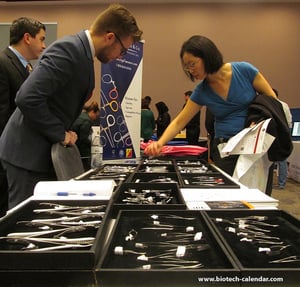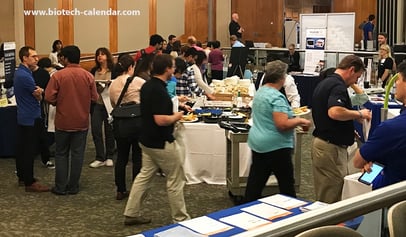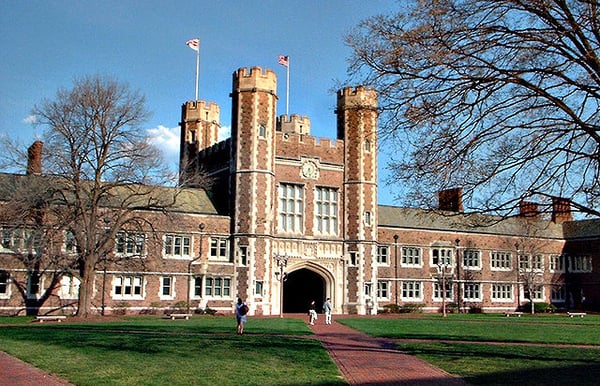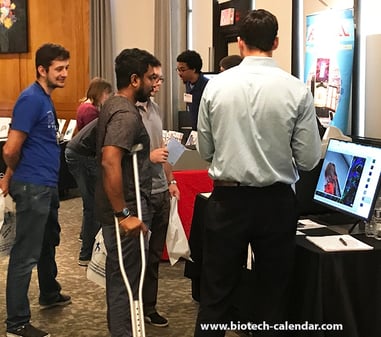Researchers at Thomas Jefferson University are working hard to develop vaccines in an effort to fight some of the world’s toughest viruses and cancers. Back in 2017, Thomas Jefferson University was awarded a $30 million five-year contract over a five-year period to research safe vaccination solutions. Since then, university researchers have been developing strategies to find life changing answers to these global issues.
Read MoreTags: Thomas Jefferson University, Vaccine Technology, virus research, brain cancer treatment, biotechnology events
The Ohio State University consistently ranks among our nations top public research universities. The University has the third largest university campus in the US, housing seven health science colleges. As far as funding goes, by the end of February 2019, Ohio’s largest university has already received $374,737,960 million for research from federal and non-federal sponsors for the fiscal year. In total research and development in 2017, the Ohio State University received $864.3 million, making them the 22nd highest in NIH funding for all universities.
Read MoreTags: BioResearch Product Faire™, Science News, The Ohio State University
Tags: University of Cincinnati, BioResearch Product Faire Event
Construction is underway on the new Anschutz Health Sciences building at the University of Colorado Anschutz Medical Campus. The building, which is expected to open in 2021, is in a gateway location at the western border of campus in Aurora. Providing 390,000 square feet of space for research programs and education, the building will become one of the largest and most advanced medical campuses in the nation.
Read MoreTags: University of Colorado Anschutz Medical Campus, BioResearch Product Faire Event, Anschutz Medical Center, Anschutz Health Sciences building
The long-term impacts of substance abuse and other related social and environmental factors on the developing brain is not well understood. This gap in understanding is mostly a result of a lack of appropriate technology. However within the past decade, new technologies have become available that increase the safety and improve the method of neuroimaging, making this the right time in history to do a non-invasive study of the factors that have an effect on the development of the adolescent brain.
Read MoreA promising relationship in technology research advancement has been made between Harvard University and Deerfield Management, a healthcare investment firm. The alliance was established to speed the development of research-to-treatments that can help improve quality of life, specifically in the health and medical sciences. Lab1636, a newly launched company, has been created as a result of the partnership with an initial investment of $100 million. Deerfield Management has chosen Harvard University as the collaborating associate, admiring their commitment to scientific discovery in the health sciences and the encouraging environment the university provides researchers.
Read MoreTags: Harvard University, Longwood Medical Center, BioResearch Product Faire Event, Research Funding, Harvard Medical School, NIH funding
New research at Washington University School of Medicine in St. Louis is aimed at investigating whether an already FDA-approved medication is effective in preventing hearing loss. The anti-seizure drug, zonisamide, is being evaluated. In the trial, the drug will be given to police officers and skull surgery patients before being exposed to loud noise. Zonisamide has previously been shown to lessen the damaging effects of hearing loss in animal trials and is typically given as a safe drug for epilepsy with minimal side effects. The project received a $10.5M grant from the Department of the Army and will be led by Washington University in collaboration with the University of Texas at Dallas, the University of Akron, Ohio, and Gateway Biotechnology in St. Louis.
Hearing damage, specifically hearing loss and tinnitus (ringing in the ears), is the most common disorder effecting members of the military. This research is intended to impact and improve quality of life for military members and their families.
This study is just one of more than 3,000 research projects underway at Washington University. Another includes the $18.5M National Institute of Health (NIH) funded Dominantly Inherited Alzheimer Network Trials Unit (DIAN-TU), a clinical trial testing multiple drugs to slow or block the development of Alzheimer’s disease in individuals inherently at risk. Additionally, Rodger and Paula Riney charitably donated another $15M for Alzheimer’s and Parkinson’s research, making Washington University a significant contributor in neurodegenerative and aging research along with other universities, such as the University of Southern California (see link: http://info.biotech-calendar.com/usc-recieves-13.98m-for-alzheimers-clinical-trial-consortium ).
Public Domain, https://commons.wikimedia.org/w/index.php?curid=505622
Washington University School of Medicine is one of the largest life science-focused recipients of NIH funding Nationwide. In the 2017 fiscal year, Washington University received the highest R&D funding it has in the course of the past decade, with $672M of the $754.4M total R&D being in Life Science expenditures.
Later this spring Biotechnology Calendar, Inc. looks forward to hosting its 20th annual BioResearch Product Faire™ event at Washington University. The event will take place Friday, April 19th, 2019.
If you are looking to sell lab research products to this marketplace, consider these facts:
- 2017 Total R&D: $754,462,000

- 2017 Life Science R&D Expenditures: $672,672,000
- Ranked 28th in the nation for Total R&D Expenditures
- 31 International research partnerships
- Over 3,000 research projects underway
Last year's show was a great success. We had a total of 338 attendees of which 120 were professors, post docs and purchasing agents. 57 attendees were lab managers with the remaining balance being both research associates and postgraduate students. This event is the perfect place to network with life science researchers and laboratory suppliers. We hope you will join us at the upcoming Washington University BioResearch Product Faire™ event.
Washington University BioResearch Product Faire™ event - April 19th, 2019
Read More
Tags: WashU, National Science Foundation, BioResearch Product Faire, WashU researchers, Department of the Army, Science News
The Alzheimer’s Clinical Trail Consortium (ACTC), led by research teams from the University of Southern California, San Diego, Harvard, and Mayo Clinic, was developed to accelerate research in Alzheimer’s and related neurodegenerative diseases. The University of Southern California has been awarded $13.98M from the National Institute on Aging (NIA), a branch of the National Institute of Health (NIH), who is leading the federal effort in this specialized field of research. The consortium’s objective is to find new and successful ways to treat and prevent this disorder, with support expected to total nearly $70 million over a five-year period. Additionally, another $19.8 million in funding has recently been awarded to the University of Southern California for other research projects related to Alzheimer’s disease and other related dementias.
Read MoreTags: USC Science, USC, Alzheimer' Research, Alzheimer's Disease, Keck School of Medicine, ACTC
The University of Pittsburg Medical Center (UPMC) is investing $2 billion in the construction of 3 new hospitals that are scheduled to break ground early this spring.
Read MoreDuke University is known as one of the largest research institutions in the nation. With over 1 billion in Total R & D expenditures it ranked 8th. Further, Duke spent over $950 million on life science research.
 Funding Facts:
Funding Facts:
− Total R & D Expenditures: $1,126,924,000
− Rank in Total R & D Expenditures: 8th
− 2017 Life Science R & D Expenditures: $950,245,000
− 2018 NIH Funding: $475,338,515
Interestingly, Duke received a $28 Million grant from the NIH to discover immunologic research directed at tackling major scientific problems that hinder the development of an effective HIV-1 vaccine. The vaccine strategy will be based on identifying and targeting novel HIV-1 vulnerabilities to B, T and NK cell immune responses and then using this information to design vaccines that will induce protective immunity at the time and location of HIV-1 transmission.
See recent Duke blog:
Researchers find how Natural Killer cells regulate protective HIV antibodies
 Meet with researchers at Duke event:
Meet with researchers at Duke event:
Duke University BioResearch Product Faire™ Event – May 17th, 2019
Attendance has been on the rise at Duke’s annual BioResearch Product Faire™ over the last three years with the show seeing an increase in researcher attendance by 35%.
“I’m absolutely thrilled with these events! They really give you a chance to make connections with real decision makers on campus and the environment is very easy to conduct business in.”
If your company offers products and services that could meet the needs of Duke’s world-class researchers, now is an ideal time to book your space at our upcoming event.
Call today to reserve your exhibit space and take the next step towards supplying Duke’s researchers with the tools they need to succeed.
Read MoreTags: Duke, tradeshow, life science events, Duke Science Event, Duke Researchers






